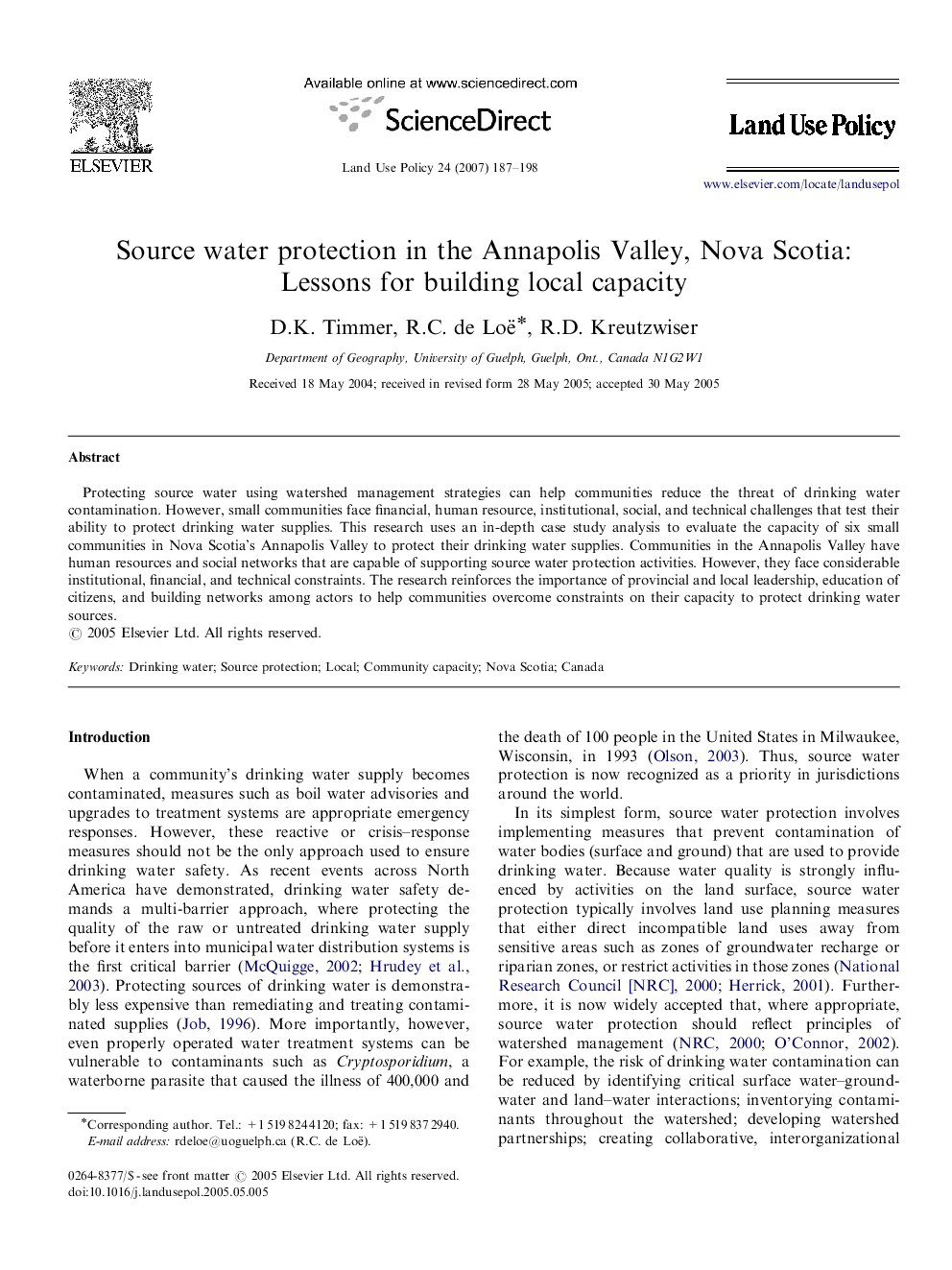| Article ID | Journal | Published Year | Pages | File Type |
|---|---|---|---|---|
| 93856 | Land Use Policy | 2007 | 12 Pages |
Protecting source water using watershed management strategies can help communities reduce the threat of drinking water contamination. However, small communities face financial, human resource, institutional, social, and technical challenges that test their ability to protect drinking water supplies. This research uses an in-depth case study analysis to evaluate the capacity of six small communities in Nova Scotia's Annapolis Valley to protect their drinking water supplies. Communities in the Annapolis Valley have human resources and social networks that are capable of supporting source water protection activities. However, they face considerable institutional, financial, and technical constraints. The research reinforces the importance of provincial and local leadership, education of citizens, and building networks among actors to help communities overcome constraints on their capacity to protect drinking water sources.
